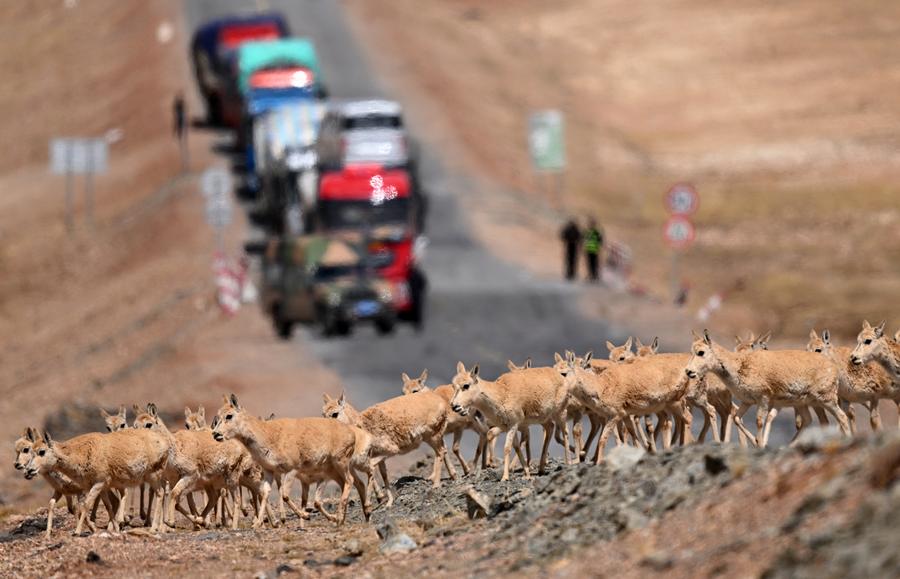
Pregnant Tibetan antelopes move across the Qinghai-Xizang Highway in Hoh Xil, northwest China's Qinghai Province, May 29, 2023. (Xinhua/Zhang Hongxiang)
BEIJING, May 24-- Northwest China's Qinghai Province on Friday pledged more efforts to promote ecological protection and further leverage its unique advantages to promote high-quality development.
Wu Xiaojun, governor of Qinghai, told a press briefing in Beijing that the province has made concerted efforts to build a green and low-carbon modern industrial system. In 2023, Qinghai's gross domestic product increased by 5.3 percent, and its per capita disposable income grew by 5.9 percent.
Qinghai has been developing a clean energy industry, witnessing increasing development vitality and momentum. Last year, the installed capacity of clean energy in the province exceeded 51 million kilowatts, accounting for 93 percent of the total installed capacity. This proportion ranked first in China.
Dubbed "the water tower of China," Qinghai is home to the Sanjiangyuan area, from which the Yangtze, Yellow, and Lancang rivers originate. Every year, 60 billion to 90 billion cubic meters of water is transported downstream, Wu said.
According to Wu, Qinghai is the only province in China with three national parks under construction at the same time. Sanjiangyuan National Park, covering a total area of 190,700 square km, is the largest national park in China.
With an improving ecological environment, the number of Tibetan antelopes has rebounded from less than 20,000 in the last century to more than 70,000 today. The number of monitored snow leopards has now exceeded 1,200.
The province has also been exploring its eco-tourism resources, and aims to build an international eco-tourism destination. It will continue to step up ecological protection efforts to protect the environment, always putting the protection of lucid waters and lush mountains first, said Liu Tao, vice governor of Qinghai.












